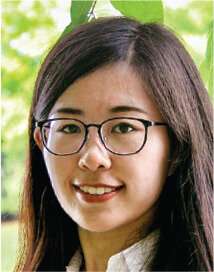November 26, 2021 report
How warm weather or bright lights can influence tree greening

Lin Meng has been named the grand prize winner of this year's Science & SciLifeLab Prize for Young Scientists for research she conducted on how both global warming and bright city lights can impact phenology in trees (when they begin to grow leaves in the spring). In her paper published in the journal Science, Meng outlines her study of satellite data showing green areas in cities along with artificial light sources and also trees growing in the Alps.
Prior research has shown that higher temperatures in cities can impact vegetation growth. In this new effort, Meng wondered what city warming, combined with global warming might be doing to the times that trees "green up" in the spring each year. To find out, she obtained and analyzed satellite data that showed when trees begin producing leaves in the spring each year for 85 U.S. cities over the years 2001 to 2014.
She found that tree green-up happens on average 6 days earlier in urban areas compared to rural areas. She also found that trees in the city are responding to climate change faster than trees in rural areas.
Meng also wondered about the impact of bright lights on trees and whether they might make trees start growing their leaves earlier in the spring each year. She studied trees growing in the Alps in Europe—noting that it is a place with a rather uniform temperature distribution but also has changing lengths of daylight across latitudes. She found evidence of a reduction in an early green-up likely due to global warming. She then studied data from NASA's Black Marble satellite, which measures artificial light in cities and also phenology data from the USA National Phenology Network. This allowed her to compare conditions in cities both with and without artificial light in the U.S., and she found that artificial light pushed spring green-up by nine days in the most extreme cases.
Meng concludes by suggesting that artificial light, by supplementing day length, leads to additions of earlier spring greening in cities, adding to the impact of earlier greening due to global warming.
More information: Lin Meng, Green with phenology, Science (2021). DOI: 10.1126/science.abm8136
Journal information: Science
© 2021 Science X Network





















